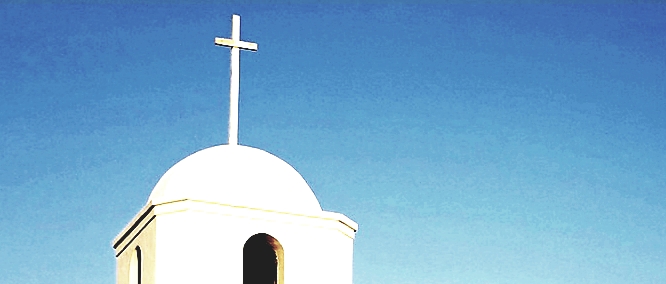Locust House Variations, A Weekly Fiction Column by Adam Gnade, “Goodbye Doesn’t Mean This Has to Be the End”
Note: excerpt from an in-progress novel.
Sometimes when you’re young enough you forget the place you’re in is not your home. Something like: “I have been here longer than I can remember and because of that this is where I live.” The story that goes with this idea: We have been in Mexico longer than I understand because I am three and my past is amorphous. My past and time are like the details of a valley (and a town in the valley) as seen through fog. What I remember: Everyone is deathly sick except for my cousins Stella and Jean Claude and me from eating spoiled shrimp. I remember the hospital room in the jungle. The priest in his black robes knelt next to my uncle, reading his last rights. The courtyard of the hospital with its palm trees and the nuns hurrying along the hall between the rooms. Monkeys in the trees—moving like black spiders against the hot silver disc of jungle sun. A church bell tolling somewhere—slow, languid in the heat.
The nuns talk to us in Spanish, mostly soft and gentle, sometimes shouting, urgent. We don’t understand a word. My cousins are older. Jean Claude, eight, Stella, seven, and the adults in our family (our protectors) are dying in a foreign country while we sit in the hot grass under the palm trees, eating chunks of mango from a blue plastic bowl like the kind you put popcorn in. The hospital is full of death. We see bodies carried out. Bodies under white sheets. Or bodies on full display, mouths open, arms splayed wild.
It’s full of life too. Babies born. Happy families crowding into the doorless adobe rooms that line the courtyard.
Our parents survive, but we are waylaid for what feels like months in the jungle before they are able to leave the hospital. At some point we get back in the Volkswagen bus and drive to the coast, after which memory pays even less attention to chronology.
Memories of the rest, also some of my first memories: Lying on the front of a surfboard as my mother paddles it up the dark, narrow canyon of a mangrove swamp at dusk, and the jungle birds lifting from the trees in slow white flocks. We stop and she sits up on the board and pulls a gray, rotting fishing net from the black water, saying, “Look what I found.” Then: a tiny black octopus from the net writhing in the palm of her hand, its many arms twisting and turning, its body twisting and turning, moving like a screw.
Then: sitting on a towel at a bright gray sand beach and a friend of my family walking up the shore, his long hair slicked-back wet, carrying a short surfboard the shape of a pumpkin seed under his arm. His knee is split open from the coral. Blood runs thick and red down the dark skin of his leg, leaving a wet trail in the sand. When he gets close you can see the gleaming white bone as blood pumps around it.
Then: a cliffside near the border and the metallic gray sea below—the tails and spiny heads of lobsters scattered across the weedy cliff face where people threw them after they ate dinner. (Some of them are ours.)
The taste of the lobster (the memory) is gone but what remains is the smell of clarified butter; the dirty steam of the boiling pot of water on the camp stove; the sharp crackling sound as the lobster’s body is ripped in two. The tail dropped in the steaming pot. The head cast aside. (The horror of that, of death, or yourself torn in two while your body still lives. Into the boiling water. A pot lid set over the back half of you as the front half lies struggling on the hardpacked dirt, watching yourself boil.)
Later: the same beach, the aluminum sea below the cliff, and sitting in the tent I share with my parents, holding a goat’s skull I found in the desert, and in the morning the tent’s stitched seams are traced in lines of ants and the skull swarms black as they eat what’s left of the flesh.
Driving: a terrible stink in the air as we drive through the desert and when we get close it’s a mountain of dead sharks as high as the bus. Thousands of them, dried in the sun, their bodies twisted, fins hacked off.
Driving: a desert town. It’s dusk and we’re driving slow through it (through the bruise-purple dusk, and through the town). A wedding at a tan adobe, mission-arched church and the bride in a lilac dress and the groom in all black walking down the steps through the crowd, waving, happy.
Driving: a graveyard in the desert. In the distance, a group of people in black standing around (and above) a new grave.
Driving: the glare of sunshine through the windows, the turquoise bead crucifix hung from the rearview mirror swinging side to side, and the smell of coconut surf wax melting.
Over the road noise and the rumble of the Volkswagen bus, Elton John sings through the speakers, “goodbyyyye doesn’t mean this has to be the end.”
He’s right, you know?
It doesn’t have to be.
There’s only one true end.
You never know the things you’re going to see.
Close your eyes then open them again.
Keep them open.
What do you see?
Purchase Locust House here.
